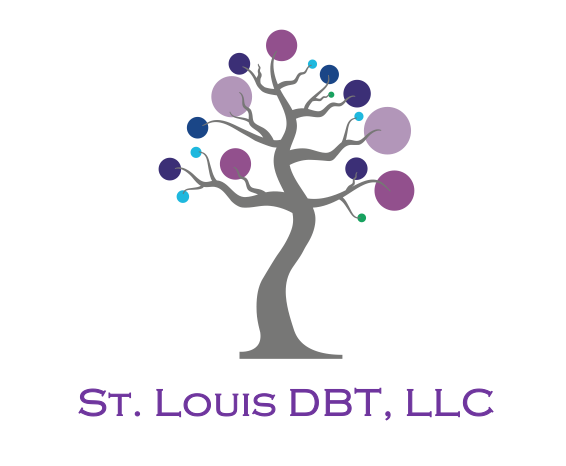The Adult and Young Adult DBT Program consists of four components:
1. Individual therapy
2. Skills group
3. Between-session coaching when crises arise
4. Therapists consult as a team to keep one another on task and adherent to the model
INDIVIDUAL THERAPY
In adult and young adult therapy, you will learn skills, apply them to current issues in your life, track your progress and enhance your motivation.
Assessment & Treatment Planning. In your first sessions, you and your therapist will assess what stage you are in and develop treatment goals to meet your needs. STLDBT uses two questionnaires to assess where you are as you enter treatment: Difficulties in Emotion Regulation Scale (DERS) and the DBT Ways of Coping Checklist (WCCL).
Based on these assessments, your history and your goals for therapy, you and your therapist will develop a treatment plan. This is intended to be a flexible document that guides your treatment.
While each session will differ, there are some elements that will be addressed in each session.
Review Diary Cards. Each week, you will complete a diary card, monitoring your emotions, urges and actions and identifying the DBT skills you used to address them. Your diary “card” may be paper cards, an app on your phone, or an electronic/computerized version of the card.
Behavior Chain Analysis. Focusing on current problems, you will learn to effectively and non-judgmentally analyze your problem behaviors and come up with practical solutions. You will practice analyzing your problem behaviors at each session, focusing on here-and-now problems.
Skills Application. Each week, you will talk about and practice skills learned in DBT Skills Group.
Monitoring Progress. Periodically, you and your therapist will establish behavioral targets. Each session, you will monitor urges and responses that lead you closer to or further from achieving your behavioral targets Targets are prioritized from self-harming behaviors getting the highest priority to therapy-interfering behaviors to quality of life interfering behaviors.
Homework. Making progress requires practicing skills between sessions. Each week, you and your therapist will devise a plan for homework that is both effective and doable given demands on your time. You will often be able to do your homework in the course of your day, being mindfully aware of opportunities to apply skills at home, school, work and in social situations.
Ongoing Assessment. Periodically, your therapist will ask you to complete the WCCL and DERS assessments to measure your progress
DBT SKILLS GROUPS
Adults of all ages will progress more quickly if they attend a skills group in addition to individual therapy. St Louis DBT offers skills groups for young adults ages 17-26 and adults age 26 and over. The adult program also offers a DBT Substance Use Disorders Skills Group for adults 18 years and older.
Skills groups provide participants with the opportunity to learn and practice skills in a classroom setting with support and encouragement from each other. Our skills group cultivates an educational and validation based environment. There will be homework!
COACHING
Therapists are available seven days a week for between-session crisis coaching by telephone, email and/or text. These calls are no more than 10-15 minutes. Typically, your therapist will ask what skills you have tried and suggest additional skills.
Consultation
Therapists that work with chronically dysregulated and often suicidal clients need support from one another to stick with the treatment and remain effective. Consultation is NOT about gossiping about clients. It is therapy for the therapists. Consultation keeps us fresh, helps us gain perspective and keeps us motivated so we can do our best for you. Thanks to DBT consultation teams, you are essentially getting treated by a full team of professionals, instead of only one.

